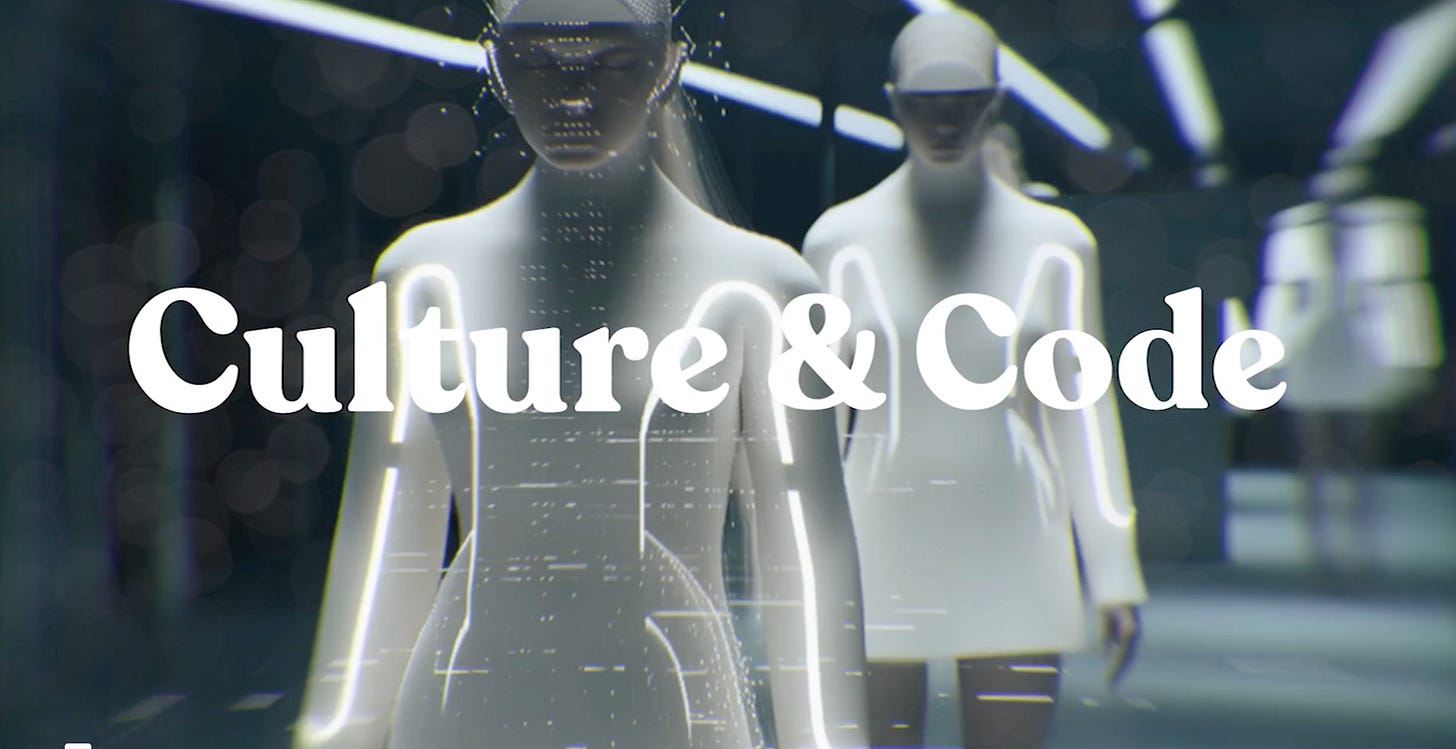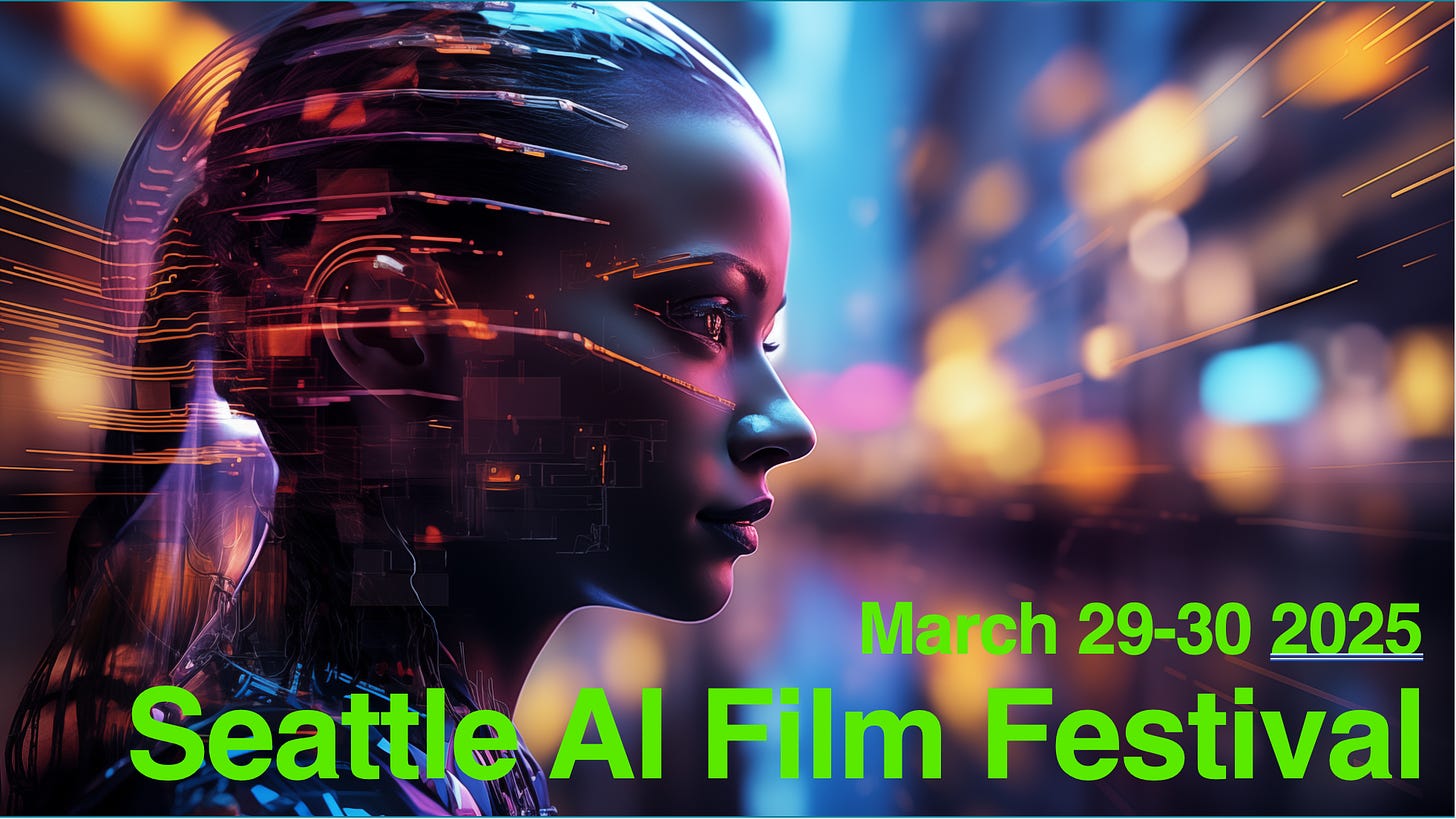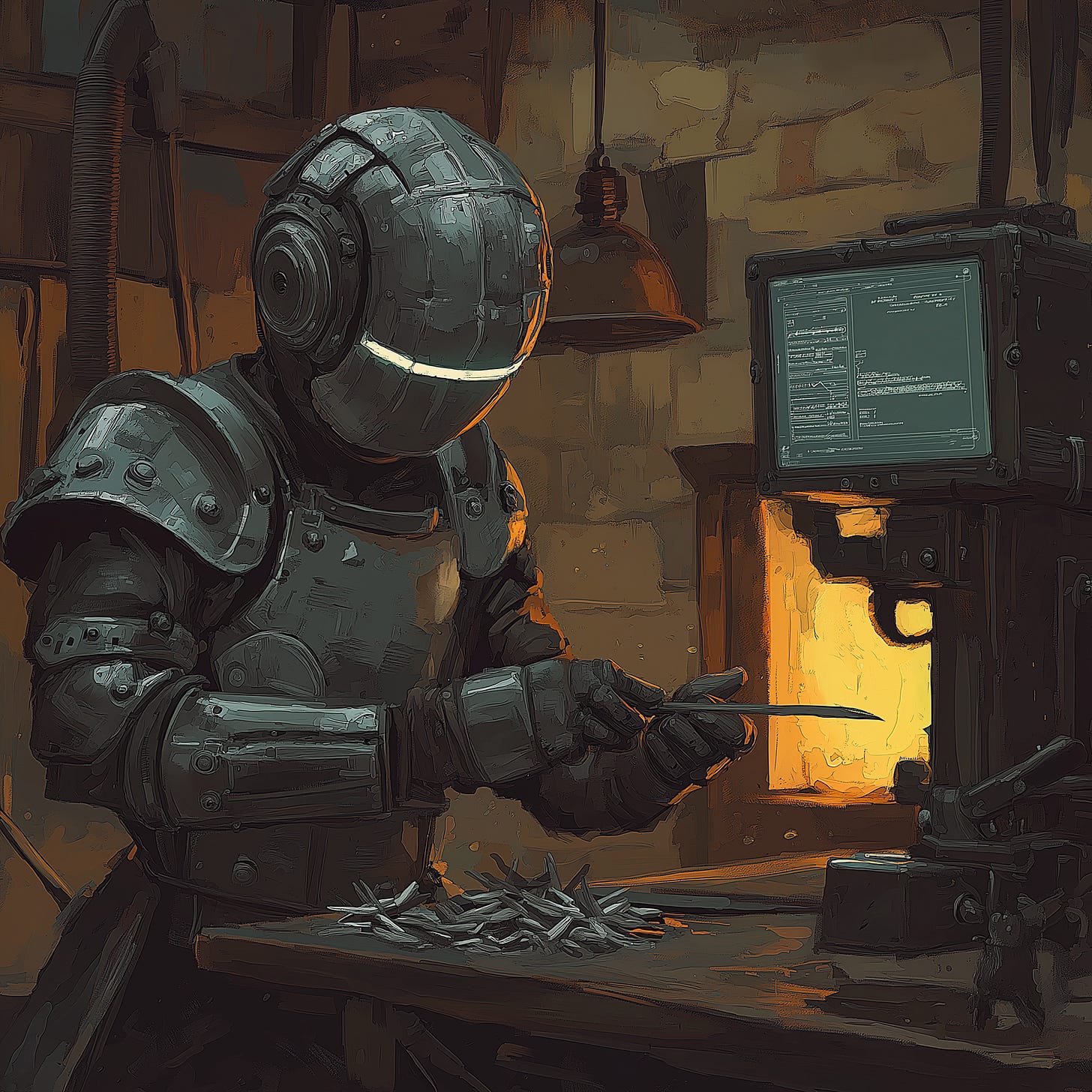This is Culture & Code, a newsletter and podcast about Creativity and Artificial Intelligence. Culture & Code explores innovation across storytelling, technology and audiences to help creative professionals collaborate better with AI and each other.
IMPORTANT ANNOUNCEMENT
The Seattle AI Film Festival (SAIFF) will take place at Seattle Center next March 29-30, 2025. The Culture & Code podcast and newsletter will spotlight the very best visual storytelling brought to life with AI in an unforgettable Spring weekend dedicated to the Creator Economy and Artificial Intelligence. If you’re a filmmaker using AI to expand your potential, we want to see your work. Head over to FilmFreeway for a full description of the Festival, rules, and submission guide.
We’re currently seeking partners and sponsors to help make SAIFF a globally recognized platform for innovation in storytelling, technology and audiences. Interested parties can contact me at john.gauntt <at> cultureandcode.io
Join us next March to celebrate this next frontier of human expression!
Human Expertise in the Age of AI
How do you learn marketable skills when technology is smarter?
In a year when college freshman enrollment is down 5% from the year before, that’s not an “academic” question anymore.
Fewer Americans are opting for a post secondary degree. Elitists snort that lower enrollments are yet another indicator of the decline of Enlightenment values. Others decry the obscene costs of a four year university degree of questionable value.
Scratch a modern CEO or a B-School professor, and they’ll wax eloquently about how AI will transform life, work and play beyond all recognition. Ask the same leader what tangible steps a 20 year old should take NOW to launch a career in an AI-powered world, and a crunchy headline becomes a soggy platitude real fast.
If I could run back the clock to my early 20s (for which my lower back would give eternal thanks), I would feel conflicted about committing to higher education. The effort, the cost, and the potential benefit of a university degree circa 2025 isn’t nearly as clear cut as when I was deciding between college, the military, or the trades.
Along with structural factors in higher education like predatory finance and degree inflation, AI bases its core value proposition around substituting machine expertise for human expertise. All the talk about co-pilots, augmentation and such, cannot obscure the fact that if your job depends on manipulating digital information in any shape or form, it is a candidate for partial to full automation. Those who argue otherwise are either bullshitting or deluded.
Are we heading to a world where a kid born after Chat GPT debuted in 2022 will never — EVER — feel intelligent? By the time a 2024 toddler becomes an adult, they will have real-time, on-demand access to the best expertise available in any standard topic area. The best doctor? Ask AI to diagnose your symptoms. The best lawyer? Ask AI about risks and trade-offs related to a legal question or strategy.
— John Gauntt with Midjourney
If I look at the speed and depth of knowledge acquisition regarding how to manipulate the physical environment for human benefit, I agree with the AI boosters. The closest analog for much of today’s knowledge work would be 19th century agricultural workers confronting mechanical combines for the first time. From a scale and productivity point-of-view, it’s not a realistic contest.
Simultaneously, the social diffusion and application of knowledge remains a human specialty. We are unparalleled at riffing on good ideas that help new behaviors spread. We’re storytellers who experience the rewards and consequences of our storytelling. That’s how we learn about the world and our place in it.
To date and for the foreseeable future, AI won’t tell good stories because AI can’t experience the world. It’s remixing what came before. Some of those remixes aren’t bad at all. But nothing is added. It’s the difference between hearing pleasant elevator music and catching a live performance with soul.
If I had to sketch the contours of a “educated person” who’s likely to thrive in an AI-powered world, it’d be someone who combines the heart of a storyteller with the mind of a developer and the skills of a craftsman. I believe that should be our pedagogical goal for developing the next generation of AI-native workers.
Interview with Todd Terrazas of AI LA and FBRC.ai
This week’s Culture & Code interview is with Todd Terrazas, the President of AI LA and the Co-Founder of FBRC.ai
Todd and I spoke about two AI community events from October 2024. The first event was the Culver Cup, a generative AI film competition that chose 50 top A.I. creators to push storytelling and craft to the next level by using generative AI workflows and tools. The second event was the Cerebral Beach AI Hackathon, which helped kicked off L.A. Tech Week 2024. Full disclosure that the Culture & Code Podcast participated in both events as a creator and as a hacker.
In addition to a behind-the-scenes peek into how different industries are integrating AI into their future, we focused on how people might learn and acquire marketable skills in an environment where everyone has instant access to world-class expertise in their pocket.
Listen to the full interview HERE (29min)
Coming Soon to the Culture & Code Podcast & Newsletter
1.) Let’s talk about AI Film Festivals — the good, bad and ugly.
2.) Break — Happy Holidays!!








